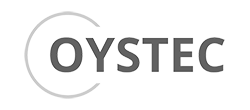This news update provides a management summary of the new PMI® PMBOK® Seventh Edition (PMBOK7) and the importance of this standard as the baseline for creating an organization's new project management methodology.
PMI® says that they are going to publish the new PMI PMBOK® Guide in its Seventh Edition (A Guide to the Project Management Body of Knowledge - PMBOK7) in “early 2021”. They will include new governing principles, performance domains, and others, which also changes the way an organization is going to create a project methodology once it is based upon PMBOK® standard. Especially, the content structure has been revised in essential points, so that the shift from PMBOK6 to PMBOK7 is much more complex than the shift from PMBOK5 to PMBOK6 in the past.
Let us start with a brief summary about the most important changes in PMBOK7:
- Project Work Focus: Instead of concentrating only on the deliverables of projects, the revised focus extends to the project outcomes, too.
- Target Audience: The new edition not only focuses on the project managers, but also on further roles in the project team, for example on the project sponsor or the product owner.
- “Project Management Principles”: There will be twelve principles which should summarize the ‘what’ and ‘why’ of project management. Note: These principles do not replace the "Process Groups".
- “Project Performance Domains”: There will be eight domains which should be critical for an effective delivery of project outcomes. Note: These domains do not replace the "Knowledge Management Areas".
- Further updates: There are more than the previously mentioned updates that are not explained in this article further. Additionally, PMI® plans to publish the PMBOK7 not only in English, but again also in other major languages such as French and German.
The new Project Performance Domains:
For PMI®, a performance domain is a field of action, thought or influence, and they can overlap or interact with other project management areas, depending on the type of a project. All new domains as follows:
| ID | Domain | Explanation |
| 1 | Stakeholder | This deals with a sound engagement with interest parties. |
| 2 | Team | Fostering team development and leadership behaviors from all project team members to achieve outcomes. |
| 3 | Development Approach & Life Cycle | The development approach and delivery cadence both influence the project life cycle and its phases. |
| 4 | Planning | Coordination activities necessary to produce project deliverables and outcomes. |
| 5 | Project Work | Needed to keep project operations running smoothly and includes, besides others, communication, engagement, and other work. |
| 6 | Delivery | Associated with delivery of quality and agreed scope. |
| 7 | Measurement | Necessary to ensure the planned project performance is achieved. |
| 8 | Uncertainty | Related activities and functions associated with risk and uncertainty. |
The new Project Management Principles:
For PMI®, a principle is a fundamental truth, norm, rule or value, and can be seen as a guideline for the right behavior or evaluation. From a cultural perspective, they should be neutral, but can be realized in different ways. All new principles as follows:
| ID | Principle | Explanation |
| 1 | Stewardship | To be a diligent, respectful and caring steward. |
| 2 | Team | To build a culture of accountability and respect. |
| 3 | Stakeholders | To engage stakeholders to understand their interests and needs. |
| 4 | Value | To focus on value. |
| 5 | Systems/Holistic Thinking | To recognize and respond to systems’ interactions. |
| 6 | Leadership | To motivate, influence, coach and learn. |
| 7 | Tailoring | To tailor the delivery approach based on context. |
| 8 | Quality | To build quality into processes and results. |
| 9 | Complexity | To address complexity using knowledge, experience, and learning. |
| 10 | Risk / Opportunities & Threats | To address opportunities and threats. |
| 11 | Adaptability & Resilience | To be adaptable and resilient. |
| 12 | Change Management | To enable change to achieve the envisioned future state. |
How to build the own organization’s project methodology now?
OYSTEC recommends considering a global standard such as the PMI® PMBOK® in its newest edition to further improve the professionalism of project managers in the own organization. This can be done by having project managers externally trained and certified as PMP® (Project Management Professional®) by PMI, or even more organization-centric by designing a project methodology inside your organization which also shall include an individual training and certification program. However, this should be done in alignment with a strong external standard like the PMBOK from PMI. It is important to note that the PMI PMBOK is not a methodology but can only be used as a foundation or basis for a methodology. This makes the whole thing very flexible and professional: a smart combination of your company assets, together with the assets from the global and industry-agnostic PMI standard, leads to a new, own project management methodology with the very best structure and content.
Note: In a former version of this article, we assumed that PMI targets to replace the "Process Groups" with the "Project Management Principles", and the "Project Knowledge Management Areas" with the "Project Performance Domains". Fortunately, that is not the case, as we have detailed in a recent news article.
Link to OYSTEC Offering: Building a Project Management Methodology based on PMI® PMBOK®7
Link to OYSTEC Offering: Building a Project Management Methodology based on PMI® PMBOK®6
Link to all OYSTEC Project Management Offerings
Link to PMI® PMBOK®7 Update Site
Copyright: PMI, PMBOK, PMP and Project Management Professional are registered trademarks of Project Management Institute, Inc.; OYSTEC and Method aaS (Method as a Service) are registered trademarks of OYSTEC GmbH & Co. KG in Germany and other countries.

